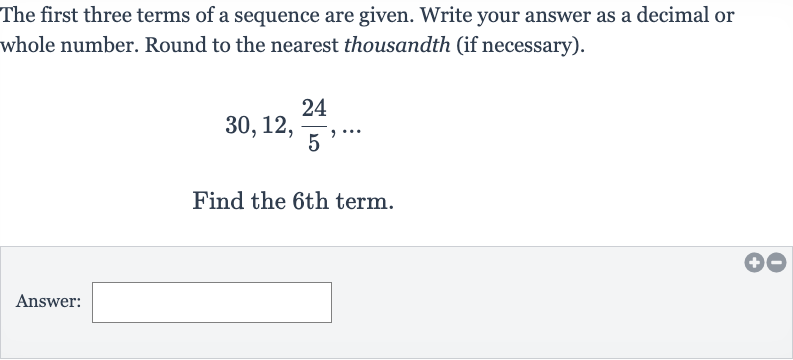AI tutor
Welcome to Bytelearn!
Let’s check out your problem:

The first three terms of a sequence are given. Write your answer as a decimal or whole number. Round to the nearest thousandth (if necessary).Find the th term.Answer:
Full solution
Q. The first three terms of a sequence are given. Write your answer as a decimal or whole number. Round to the nearest thousandth (if necessary).Find the th term.Answer:
- Determine Pattern or Rule: To find the term of the sequence, we first need to determine the pattern or rule that the sequence follows. We can start by looking at the ratios of consecutive terms to see if the sequence is geometric.
- Calculate Common Ratio: The ratio of the second term to the first term is . The ratio of the third term to the second term is . Since these ratios are the same, we can conclude that the sequence is a geometric sequence with a common ratio of .
- Use Geometric Sequence Formula: To find the th term, we use the formula for the nth term of a geometric sequence, which is , where is the first term, is the common ratio, and is the term number. Here, , , and .
- Substitute Values into Formula: Plugging the values into the formula, we get .
- Calculate Exponential Value: Calculating , we get .
- Find th Term: Now, we multiply by to find the th term: .
- Round to Nearest Thousandth: Since we need to round to the nearest thousandth, the term rounded to the nearest thousandth is .
More problems from Find trigonometric functions using a calculator
QuestionGet tutor help
QuestionGet tutor help
QuestionGet tutor help
QuestionGet tutor help
QuestionGet tutor help
QuestionGet tutor help
Question
. Find the value of in degrees.Write your answer in simplified, rationalized form. Do not round.____
Get tutor helpQuestionGet tutor help
